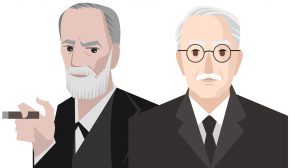Instinct
1. Natural inward impulse; unconscious, involuntary, or unreasoning prompting to any mode of action, whether bodily, or mental, without a distinct apprehension of the end or object to be accomplished. An instinct is a propensity prior to experience, and independent of instructions. (Paley) An instinct is a blind tendency to some mode of action, independent of any consideration, on the part of the agent, of the end to which the action leads. (Whately) An instinct is an agent which performs blindly and ignorantly a work of intelligence and knowledge. (Sir W. Hamilton) By a divine instinct, men’s minds mistrust Ensuing dangers. (Shak)
2. (Science: zoology) Specif, the natural, unreasoning, impulse by which an animal is guided to the performance of any action, without of improvement in the method. The resemblance between what originally was a habit, and an instinct becomes so close as not to be distinguished. (Darwin)
3. A natural aptitude or knack; a predilection; as, an instinct for order; to be modest by instinct.
Origin: L. Instinctus instigation, impulse, fr. Instinguere to instigate: cf. F. Instinct. See instinct.
Inborn pattern of behavior often responsive to specific stimuli; the spawning instinct in salmon; altruistic instincts in social animals.Inherited behavioural characteristics.
Dictionary > Instinct


